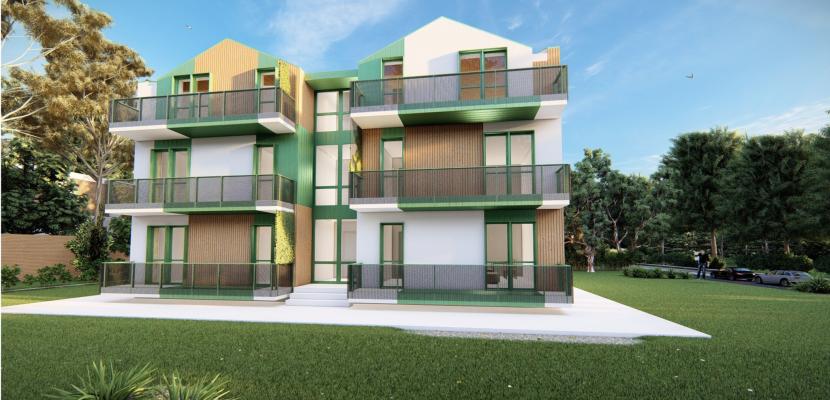
NZEB service housing - Attracting healthcare & education professionals to rural communities

About this good practice
Acknowledging the critical need for qualified professionals in education and healthcare, the administration of Ion Neculce Commune has taken proactive measures to enhance essential public services. Responding to community concerns regarding the shortage of medical and teaching staff, the municipality successfully secured European funding to develop a Net-Zero Energy Building (NZEB) service housing complex in Războieni village.
This initiative aligns with the National Housing Strategy, ensuring compliance with NZEB Plus standards and a 20% reduction in primary energy demand (PED) beyond standard requirements.
The complex includes six modern apartments of 66 m², each featuring two rooms and utilizing heat pump technology for heating and cooling.
The implementation of this project underscores the administration’s commitment to public welfare. By actively addressing citizens’ concerns and prioritizing their needs, this initiative represents a long-term investment in community stability, reinforcing the foundation for a resilient and thriving local population
Expert opinion
Resources needed
The NZEB service housing project in Războieni village is funded through the National Recovery and Resilience Plan, with a total investment of 744,000 EUR.
Evidence of success
This initiative is a good practice as it addresses the shortage of medical and teaching staff, ensuring essential services. By providing housing, it attracts professionals, reduces commuting time, and improves emergency response. Local families benefit from better healthcare and education access. The energy-efficient design lowers living costs, supporting long-term sustainability for both residents and the community, reinforcing local stability and well-being.
Potential for learning or transfer
This NZEB service housing project offers a scalable model for other regions facing shortages of medical and teaching staff, especially in rural areas. Key success factors include securing European funding, aligning with national housing strategies, and prioritizing energy efficiency to reduce long-term costs.
Potential challenges include funding availability, regulatory differences, and the need for local government commitment. However, with proper policy adaptation, this model can be replicated to improve public services and community stability in other regions.
This approach has high transfer potential, particularly in rural EU regions facing similar workforce shortages. By ensuring affordable, sustainable housing, municipalities can attract and retain qualified professionals, strengthening essential services. Lessons from Ion Neculce can guide similar initiatives across Europe, fostering long-term community resilience.
Further information
Good practice owner
You can contact the good practice owner below for more detailed information.
